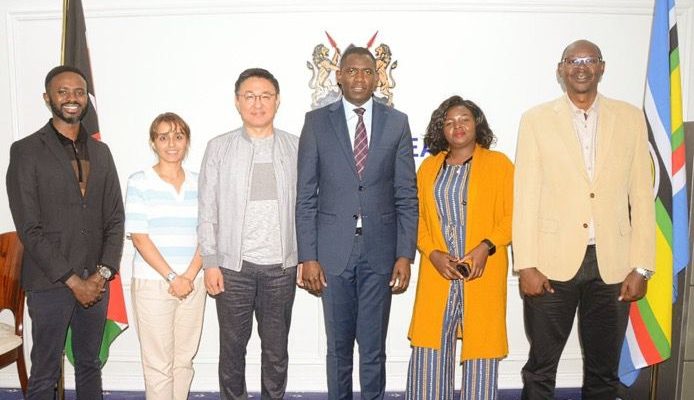By Mohammed Juma
Kenya’s Ministry of Health is exploring a partnership with South Korea’s Glory Biotech Corp Limited to strengthen HIV care through improved diagnostic technologies and potential local manufacturing.
On June 18, 2025, a delegation from Glory Biotech, led by Vice President Jae-Young Lee, paid a courtesy call on the Principal Secretary for Medical Services, Dr. Ouma Oluga.
Their discussions focused on laboratory diagnostic technologies for HIV care, with further dialogue on technology transfer and the potential to establish local production facilities in Kenya.
The talks align with Kenya’s broader efforts to expand access to quality diagnostics while building self-reliance in health systems.
Kenya conducts over 10 million HIV screening tests annually, and as of 2024, approximately 1.3 million Kenyans are living with HIV.
According to UNAIDS, 97% of those diagnosed are on antiretroviral therapy, and 94% have achieved viral suppression.
While Kenya has made notable progress in treatment coverage, the country still depends heavily on imported test kits and medical diagnostics.
More than 70% of health products in Africa are imported, a trend that exposes countries to global supply chain disruptions.
In 2024, Revital Healthcare opened Africa’s first fully integrated rapid diagnostic test-kit manufacturing facility in Kilifi County, capable of producing up to 240 million kits annually.
The development marked a major step toward local production, though challenges remain in scale, regulation, and investment.
Glory Biotech, which specializes in molecular diagnostics, is seeking partnerships across Africa to introduce innovative testing technologies.
Dr. Oluga emphasized the importance of prevention alongside innovation, saying, “We have issues of prevention that we want counties to now start integrating into their healthcare services… Nearly 6,000 new HIV infections were recorded among individuals aged 15 to 24, which is deeply troubling.”
The Ministry of Health indicated that relevant regulatory bodies, including the Pharmacy and Poisons Board and the World Health Organization, will be engaged as part of the next steps.
The collaboration, if realized, could support Kenya’s goal of achieving the UNAIDS “95-95-95” targets by 2030 and improving long-term resilience in HIV care.

